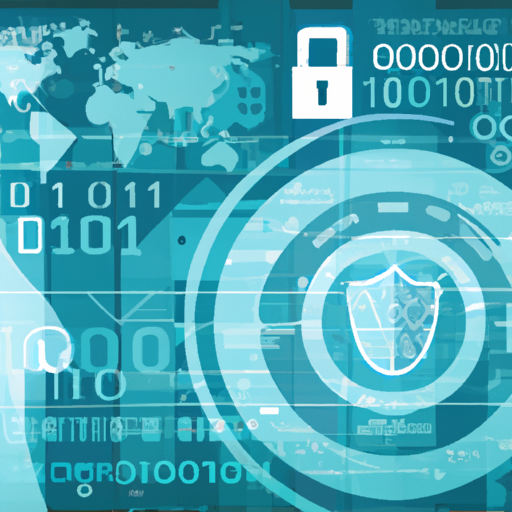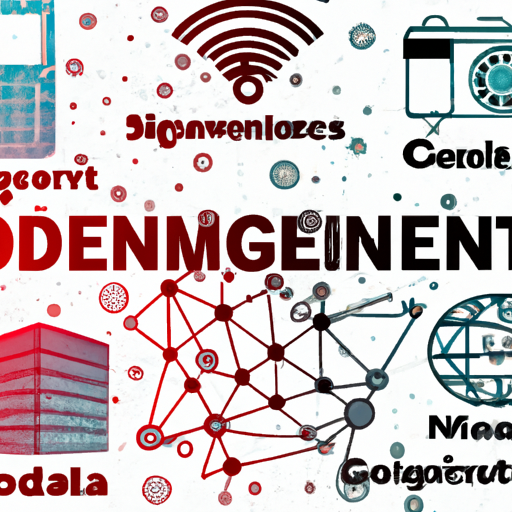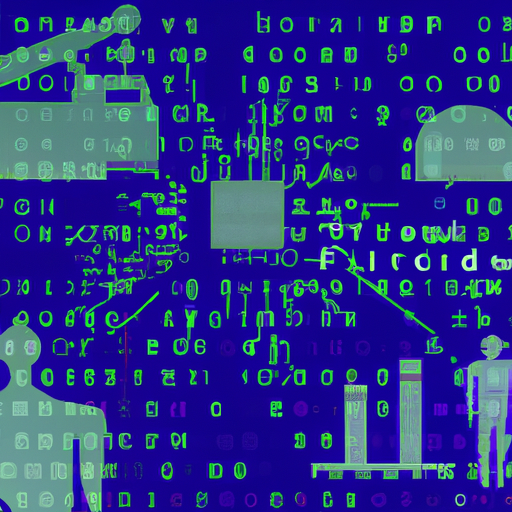-
Table of Contents
- Introduction
- How AI and Machine Learning are Changing the Future of Privacy and Security
- The Impact of the GDPR on the Future of Privacy and Security
- Exploring the Role of Blockchain in the Future of Privacy and Security
- The Growing Need for Cybersecurity Education in the Future of Privacy and Security
- Conclusion
“Securing the Future: Protecting Your Privacy and Security in the Digital Age”
Introduction
The future of privacy and security is an ever-evolving landscape. With the rise of technology, the need for secure data and privacy has become increasingly important. Cybersecurity and data privacy are two of the most important aspects of this landscape, as they are essential for protecting individuals and organizations from malicious actors. As technology continues to advance, so too will the need for robust security and privacy measures. This includes the development of new technologies, such as artificial intelligence and blockchain, as well as the implementation of laws and regulations to ensure that data is protected. In the future, it is likely that privacy and security will become even more important, as the amount of data that is collected and stored continues to grow.
How AI and Machine Learning are Changing the Future of Privacy and Security
The advent of artificial intelligence (AI) and machine learning (ML) has revolutionized the way we think about privacy and security. AI and ML are powerful tools that can be used to identify patterns, detect anomalies, and automate processes. As such, they are becoming increasingly important in the realm of privacy and security.
AI and ML can be used to detect and prevent cyberattacks, identify malicious actors, and protect sensitive data. For example, AI-based systems can be used to detect suspicious activity on networks and alert administrators to potential threats. ML algorithms can be used to detect anomalies in user behavior, such as unusual login attempts or unusual data access patterns. This can help organizations identify and respond to potential threats before they become a problem.
AI and ML can also be used to improve authentication processes. For example, AI-based facial recognition systems can be used to verify user identities and prevent unauthorized access. ML algorithms can also be used to detect fraudulent activity, such as credit card fraud or identity theft. By using AI and ML to analyze large amounts of data, organizations can quickly identify suspicious activity and take appropriate action.
AI and ML can also be used to improve privacy and security by helping organizations better understand their customers. AI-based systems can be used to analyze customer data and identify patterns that can be used to improve customer service and protect customer privacy. ML algorithms can be used to detect changes in customer behavior, such as an increase in online purchases or a decrease in website visits. This can help organizations better understand their customers and take appropriate action to protect their data.
In conclusion, AI and ML are powerful tools that are revolutionizing the way we think about privacy and security. By using AI and ML to detect and prevent cyberattacks, identify malicious actors, and improve authentication processes, organizations can better protect their data and their customers. AI and ML can also be used to improve customer service and protect customer privacy. As AI and ML continue to evolve, they will become even more important in the realm of privacy and security.
The Impact of the GDPR on the Future of Privacy and Security
The General Data Protection Regulation (GDPR) is a landmark piece of legislation that has had a significant impact on the future of privacy and security. The GDPR was introduced in 2018 and is designed to protect the personal data of European Union citizens. It applies to any organization that processes the personal data of EU citizens, regardless of where the organization is based.
The GDPR has had a major impact on the way organizations handle personal data. It requires organizations to be transparent about how they collect, store, and use personal data. Organizations must also obtain explicit consent from individuals before collecting their data. Furthermore, organizations must provide individuals with the right to access, rectify, and delete their data.
The GDPR also requires organizations to implement appropriate technical and organizational measures to protect personal data. This includes measures such as encryption, pseudonymization, and data minimization. Organizations must also report any data breaches to the relevant authorities within 72 hours.
The GDPR has had a major impact on the future of privacy and security. It has raised the bar for organizations when it comes to protecting personal data. It has also increased public awareness of the importance of data privacy and security. As a result, organizations are now more likely to take data privacy and security seriously.
The GDPR has also had a positive impact on the development of new technologies. For example, the development of blockchain technology has been accelerated by the GDPR. Blockchain technology is a secure and transparent way of storing and sharing data, which is ideal for protecting personal data.
In conclusion, the GDPR has had a major impact on the future of privacy and security. It has raised the bar for organizations when it comes to protecting personal data and has increased public awareness of the importance of data privacy and security. It has also had a positive impact on the development of new technologies, such as blockchain technology.
Exploring the Role of Blockchain in the Future of Privacy and Security
The emergence of blockchain technology has revolutionized the way we think about privacy and security. Blockchain is a distributed ledger technology that enables secure, transparent, and immutable transactions. It is a decentralized system that allows users to store and transfer data without the need for a third-party intermediary.
Blockchain technology has the potential to revolutionize the way we think about privacy and security. By using a distributed ledger, blockchain technology can provide users with a secure and private way to store and transfer data. This technology can also be used to create secure digital identities, allowing users to control who has access to their data.
In addition, blockchain technology can be used to create secure and transparent transactions. By using a distributed ledger, blockchain technology can provide users with a secure and transparent way to store and transfer data. This technology can also be used to create secure digital identities, allowing users to control who has access to their data.
Finally, blockchain technology can be used to create secure and immutable transactions. By using a distributed ledger, blockchain technology can provide users with a secure and immutable way to store and transfer data. This technology can also be used to create secure digital identities, allowing users to control who has access to their data.
Overall, blockchain technology has the potential to revolutionize the way we think about privacy and security. By using a distributed ledger, blockchain technology can provide users with a secure and private way to store and transfer data. This technology can also be used to create secure digital identities, allowing users to control who has access to their data. As the technology continues to evolve, it is likely that blockchain will play an increasingly important role in the future of privacy and security.
The Growing Need for Cybersecurity Education in the Future of Privacy and Security
The future of privacy and security is increasingly dependent on the development of effective cybersecurity education. As technology continues to evolve, the need for individuals to understand the risks associated with the use of digital devices and networks is becoming more and more important. Cybersecurity education is essential for individuals to be able to protect themselves and their data from malicious actors.
Cybersecurity education is the process of teaching individuals about the risks associated with the use of digital devices and networks, and how to protect themselves from these risks. This includes teaching individuals about the importance of strong passwords, the use of two-factor authentication, and the need to keep their software and operating systems up to date. It also includes teaching individuals about the potential risks associated with the use of social media, the importance of backing up data, and the need to be aware of phishing scams.
The need for cybersecurity education is becoming increasingly important as the number of cyberattacks continues to rise. Cybercriminals are becoming more sophisticated in their methods, and the potential for data breaches and other malicious activities is increasing. As such, it is essential that individuals understand the risks associated with the use of digital devices and networks, and how to protect themselves from these risks.
In addition to the need for individuals to understand the risks associated with the use of digital devices and networks, there is also a need for organizations to invest in cybersecurity education. Organizations need to ensure that their employees are aware of the risks associated with the use of digital devices and networks, and how to protect themselves from these risks. Organizations also need to ensure that their systems are secure, and that they have the necessary measures in place to protect their data from malicious actors.
The need for cybersecurity education is only going to increase in the future, as technology continues to evolve and the potential for cyberattacks continues to rise. It is essential that individuals and organizations alike understand the risks associated with the use of digital devices and networks, and how to protect themselves from these risks. Investing in cybersecurity education is essential for the future of privacy and security.
Conclusion
The future of privacy and security is uncertain, but it is clear that the need for increased cybersecurity and data privacy will continue to grow. As technology advances, so too will the need for more secure systems and data protection. Companies and organizations must continue to invest in the latest security measures and technologies to protect their data and the privacy of their customers. Governments must also continue to develop and enforce laws and regulations to protect the privacy of citizens and ensure that data is not misused or abused. With the right investments and policies in place, the future of privacy and security can be a bright one.




